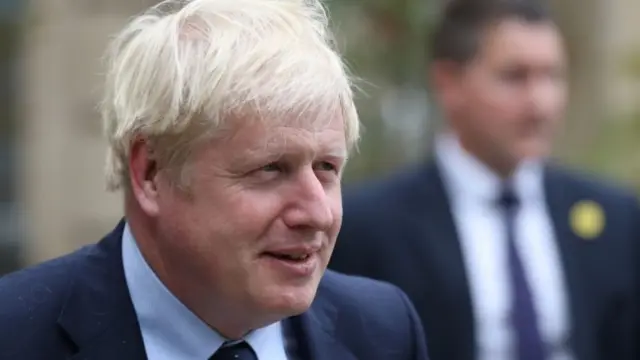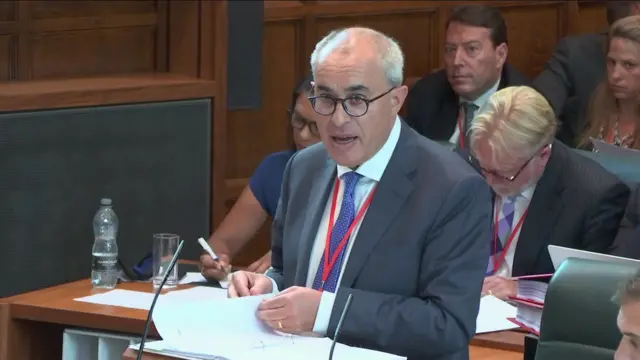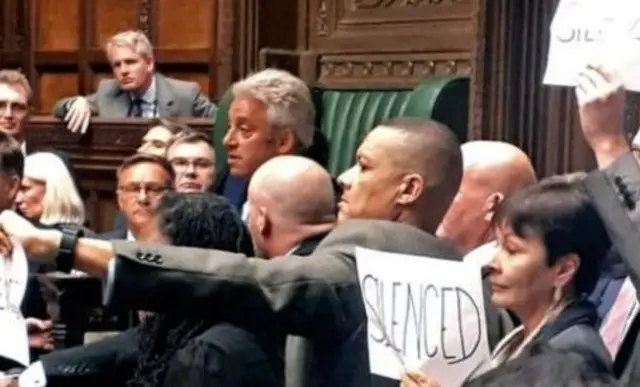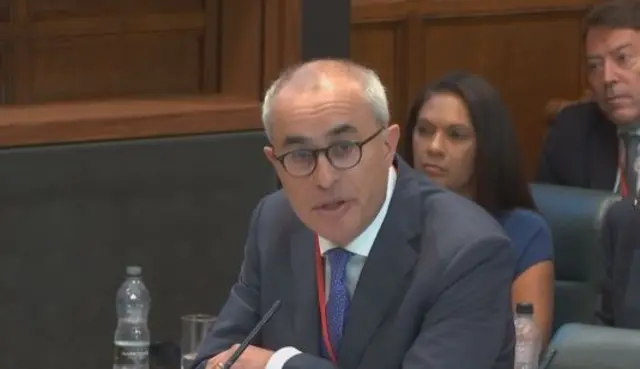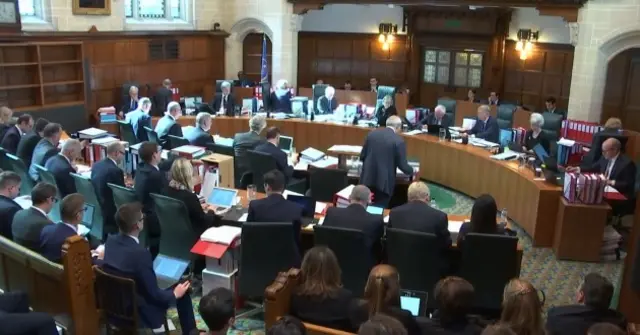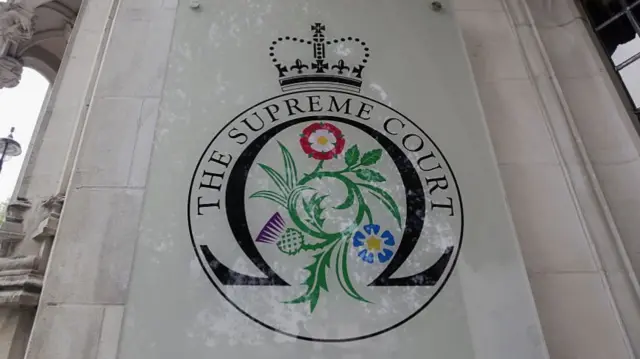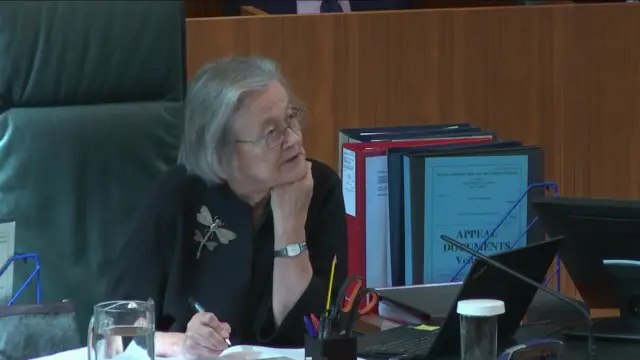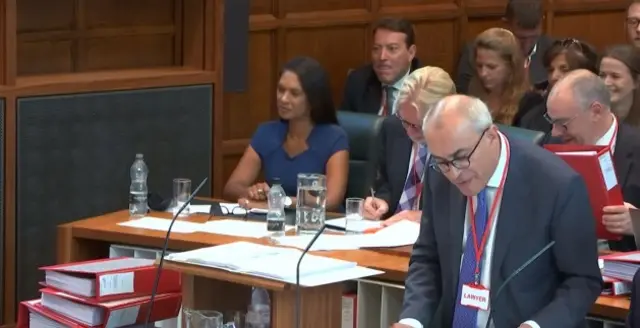Scope of prorogation 'is a matter for the courts' - Lord Pannickpublished at 12:52 BST 17 September 2019
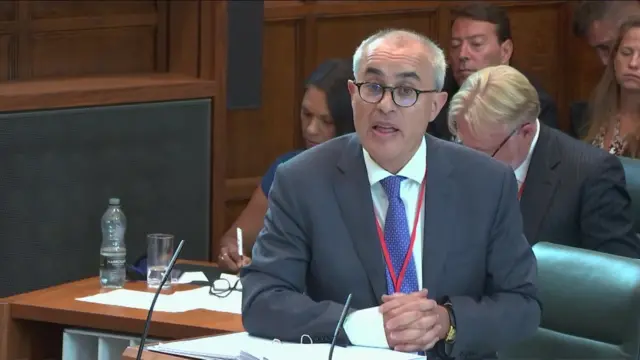 Image source, UK Supreme Court
Image source, UK Supreme CourtLord Pannick insists the "scope and extent of prorogative power is a matter for the courts".
“I’m not challenging the existence of a power to prorogue," Ms Miller's lawyer tells the court.
"I recognise that any prorogation involves a removal for that length of time of the powers of Parliament to scrutinise.
“But given the junior role of the executive, our case is that it’s implicit in the power to prorogue that it will not be used in such a way as to remove Parliamentary scrutiny other than so far as is reasonably necessary to accomplish a legitimate objective - and here the objective that is presented is to end one session and start another with a Queen’s speech.”
